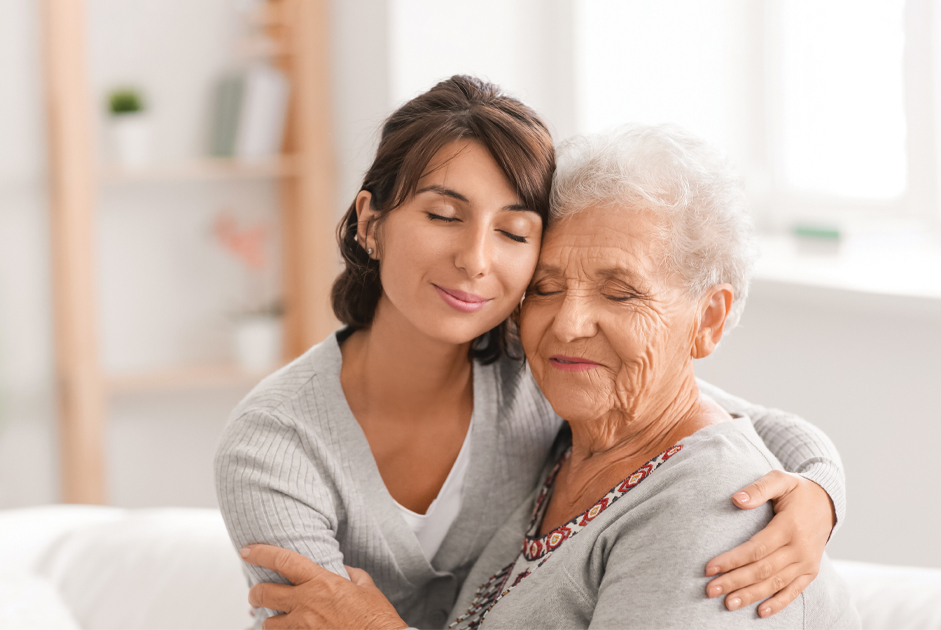There will come a time for many people when elderly loved ones will need extra care. While the adjustment may be stressful for you, it’s also important to remember that it is not easy for your loved one to become dependent on you or others for his or her care. Most important is to ensure loved ones are treated with respect, love and patience.
As a caregiver, take time to prepare for emergencies. Make a list of doctors and other healthcare team members. Write down medicines, past surgeries, insurance information and other important medical details. Talk with your loved ones about their preferences for housing and long term care. Discuss living wills and other legal documents that outline their wishes if, at some point, they cannot communicate.
Here are some more ways to care for the older people we love:
Keep Them Active and Involved
Exercise can keep elderly loved ones healthy and can even reduce their risk of falling. It is not unusual for older individuals to become isolated, lonely or even suffer from depression, especially if they have lost their spouse. For this reason, it is important to keep them involved with their family and friends, or even seek out new connections.
Visit Often
Your loved one needs social interaction with you, and you need reassurance that he or she is doing well. You may want to check the overall cleanliness of the house or to see if anything is broken and needs to be fixed. Check the pantry to make sure there is enough food, and make sure he or she is collecting the mail.
Hire Help
There may be a need to hire a helper, aide or another type of older adult caretaker. This could be someone who helps with daily activities such as showering, errands or housekeeping.
Organize a Schedule
If necessary, try to arrange a schedule among you and other family members to help your older loved one with things like doctor appointments, shopping, cooking, cleaning, etc. A schedule will not only help keep your life structured and organized, it will help your loved one know what’s on the agenda for the day, as well.
Review Medications
Be sure that your loved one has an adequate supply of medications. If there are multiple medications, buy a pill box organizer with compartments labeled with the days of the week as well as AM and PM doses. If a new medication is prescribed, ask the doctor or pharmacist about potential side effects or possible interactions with current medications.
Take Care of Paperwork
Make sure everything is up to date and complete when it comes to important paperwork. This may include discussing a will or deciding on power of attorney. These conversations can be challenging, but they are necessary in order for everyone to be prepared.
Make Home Modifications
Take a good look around to see what may be a safety hazard when taking care of elderly adults. Things like:
- Checking the overall lighting in the house to make sure it is bright enough.
- Installing a ramp for wheelchairs or walkers.
- Installing handrails and grab bars at the toilet and shower.
- Removing small rugs that could potentially cause stumbles or catch on walkers/canes.
- Plugging in a few auto-sensor night lights throughout the home so they are able to see if they wake up at night.
- Making sure cables, cords and wires are safely tucked away to prevent potential falls.
- Removing extra clutter that is lying around or furniture that is in the way.
Discuss Finances
Your older loved one may be uncomfortable talking about his or her finances, but it’s still important to try to have open discussions about financial needs and expenses, especially if he or she lives on a fixed income or if there is a budget to adhere to.
Watch for Driving Issues
There may come a time when your loved one is no longer able to drive due to declines in eyesight or reaction times. It is important to assess his or her driving abilities, and when it does become an issue, offer other options that may be helpful. For example, you might consider hiring a driver or using a delivery service for groceries.
Take Care of Yourself
It is important to take care of yourself when taking care of older loved ones. Get away for a while and enjoy your life, as well. Although caregiving can be rewarding, caregivers often face challenges. If you need a break from caregiving or would like assistance, ask family members, other loved ones or resources in your community for help.



















